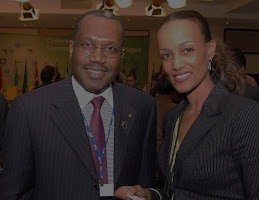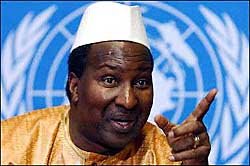- Regional Economic Communities (RECs)
- Policy Makers
- Institiute of Higher Learning
- Civil Society
- Private Sector
- AU/ECA/ADB/World Bank/GKP/GAID/ITU
RI promote sustainable growth
Historically, the African domestic market has been fragmented by high internal and external barriers. In 1991, the Abuja Treaty was adopted, establishing a timetable towards the creation of a pan-African Economic Community by the year 2015.
The existing Regional Economic Communities were to be the foundation. This is an ambitious objective, but the first building block must be the creation of free trade areas that can be the foundation for wider economic integration at the regional and continental level.
There are huge challenges posed by the proliferation of regional economic groupings and protocols across the continent, characterised by overlapping membership.
However, progress has been made in the past decade. Most regions have now adopted a common external tariff structure (usually involving no more than three to four bands) – the most recent example being the EAC in January 2005 – while some, including CEMAC, WAEMU and member countries in COMESA, have also removed custom duties among themselves.
Recent ECA estimates that welfare gains from regional integration in sub-Saharan Africa alone, could be of the order of US$1.2 billion, reinforcing the view that Africa’s own liberalisation offers major gains.
The existing Regional Economic Communities were to be the foundation. This is an ambitious objective, but the first building block must be the creation of free trade areas that can be the foundation for wider economic integration at the regional and continental level.
There are huge challenges posed by the proliferation of regional economic groupings and protocols across the continent, characterised by overlapping membership.
However, progress has been made in the past decade. Most regions have now adopted a common external tariff structure (usually involving no more than three to four bands) – the most recent example being the EAC in January 2005 – while some, including CEMAC, WAEMU and member countries in COMESA, have also removed custom duties among themselves.
Recent ECA estimates that welfare gains from regional integration in sub-Saharan Africa alone, could be of the order of US$1.2 billion, reinforcing the view that Africa’s own liberalisation offers major gains.
.jpg)








